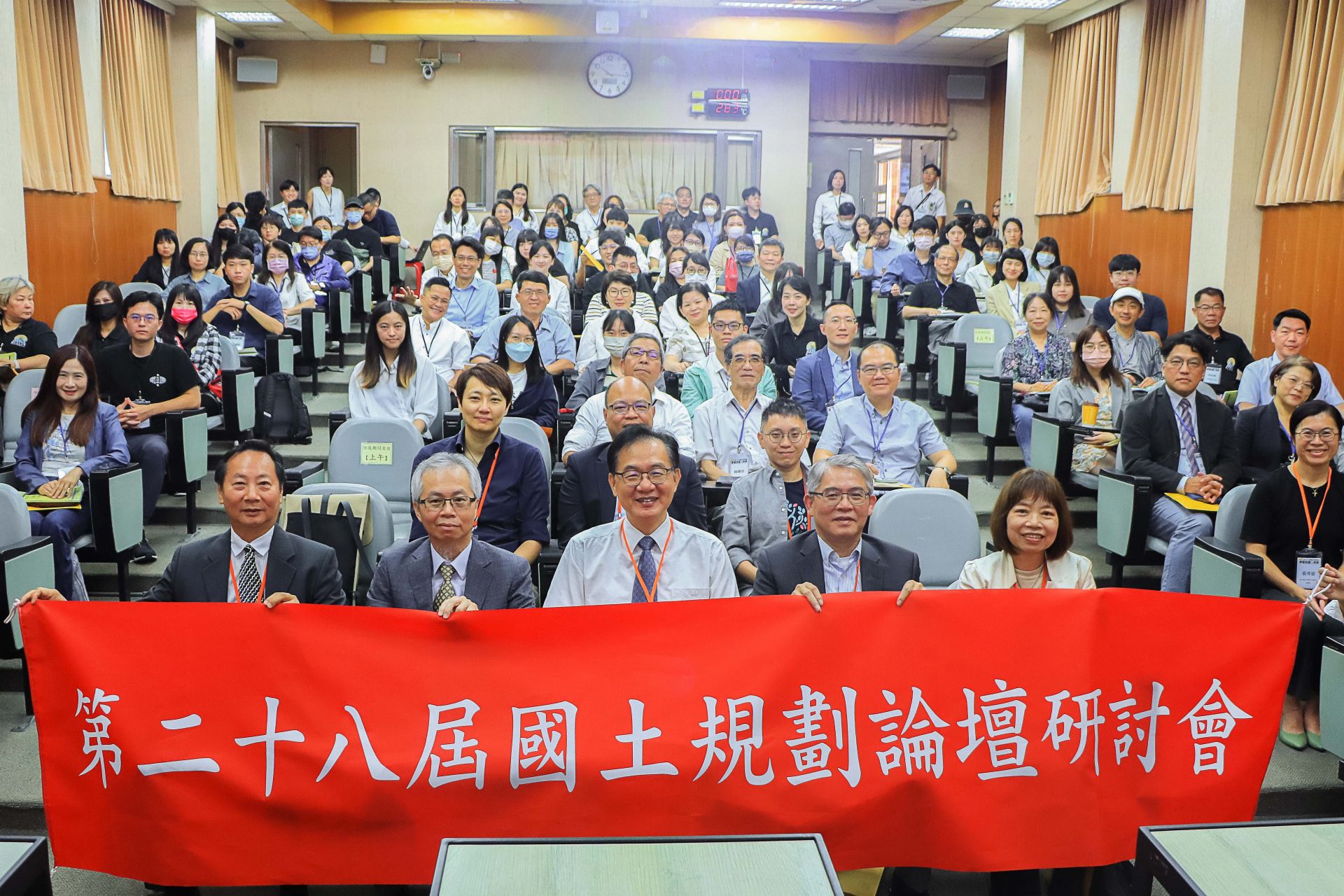Pao-Kuan Wang, a Visiting Distinguished Chair Professor of the Department of Aeronautics and Astronautics at NCKU, and an Academician of the Research Center for Environmental Changes at Academia Sinica, was recently awarded the Nikolai Dotzek Award, the highest honorary award of the European Severe Storms Laboratory (ESSL). This marks the first time that a member of Taiwan's meteorological community has received an award from a European multinational meteorological research organization, and Prof. Wang is the first Asian recipient of this award, which reflects the increasing status and influence of Asia in this field.
Established in 2006, the European Severe Storms Laboratory (ESSL) is a non-profit international organization that promotes and coordinates research and response to severe weather disasters among countries, facilitates academic exchange and experimental research, and provides information to the public. The Nikolai Dotzek Award was established in 2011 to commemorate Nikolai Dotzek, the founder of ESSL. In addition to honoring Dotzek, the ESSL also recognizes researchers who have made significant contributions to the fields of severe weather, storms, and lightning.
Professor Wang has dedicated himself to atmospheric science and thunderstorm physics, and has published many papers. Among them, his Gravity Wave Breaking Theory has made significant contributions to weather forecasting and climate modeling. Experts in the field of weather hazards and thunderstorms nominated Prof. Wang for this international award, and the jury recognized him as one of the three winners of the 2023 Award for research in atmospheric science using artificial satellites.
The Earth is surrounded by a large atmosphere, which is divided into different altitudes, including the troposphere, stratosphere, mesosphere, and thermosphere. The stratosphere usually suppresses the upward transport of material from the troposphere because of stable air currents. However, Prof. Wang discovered that the strong updrafts of thunderstorm clouds induce gravity waves at the top of the clouds, which, under appropriate conditions, penetrate the top of the troposphere and generate wave breaking, transporting water vapor and ice crystals to the stratosphere. This breaking phenomenon has important implications for the development of weather and climate systems.
Prof. Wang has also developed a cloud model to study thunderstorms. This model can calculate the possible time of thunderstorm generation, see the detailed structure (including ice, snowflakes, hail, etc.), vertical airflow distribution, and predict the rising speed of thunderstorms. The model successfully simulates many storm features, such as cold cirrus, cold-U, or anvil cirrus plumes, which are observed by our satellite in the interaction between overshooting tops and the ambient wind field, with high computer resolution.
Clouds are currently considered to be one of the greatest uncertainties in predicting future climate change studies because their impact on atmospheric radiation balance is significant but not easily predicted. Prof. Wang's research expertise can help reduce the critical factor of clouds, and he is a pioneer in deep convection system research. Professor Wang believes that Taiwan has the advantage of natural geography and can observe many weather phenomena. However, there is still much room for academic theoretical research and exploration. He encourages students who are interested in science to be curious and imaginative about things and to keep doing research and verification. Even if the research fails, it is not the end of the world, and in the end, one can enjoy doing research as joy.
Detailed award information:
https://www.essl.org/cms/nikolai-dotzek-award-2023-to-pao-wang-martin-setvak-and-kris-bedka/?fbclid=IwAR0aXt2kmA_1puA1I_V51kPE0r09Eupn0Cj3npSrZQoBLUdMr75XCdELq%20%C2%A0
Established in 2006, the European Severe Storms Laboratory (ESSL) is a non-profit international organization that promotes and coordinates research and response to severe weather disasters among countries, facilitates academic exchange and experimental research, and provides information to the public. The Nikolai Dotzek Award was established in 2011 to commemorate Nikolai Dotzek, the founder of ESSL. In addition to honoring Dotzek, the ESSL also recognizes researchers who have made significant contributions to the fields of severe weather, storms, and lightning.
Professor Wang has dedicated himself to atmospheric science and thunderstorm physics, and has published many papers. Among them, his Gravity Wave Breaking Theory has made significant contributions to weather forecasting and climate modeling. Experts in the field of weather hazards and thunderstorms nominated Prof. Wang for this international award, and the jury recognized him as one of the three winners of the 2023 Award for research in atmospheric science using artificial satellites.
The Earth is surrounded by a large atmosphere, which is divided into different altitudes, including the troposphere, stratosphere, mesosphere, and thermosphere. The stratosphere usually suppresses the upward transport of material from the troposphere because of stable air currents. However, Prof. Wang discovered that the strong updrafts of thunderstorm clouds induce gravity waves at the top of the clouds, which, under appropriate conditions, penetrate the top of the troposphere and generate wave breaking, transporting water vapor and ice crystals to the stratosphere. This breaking phenomenon has important implications for the development of weather and climate systems.
Prof. Wang has also developed a cloud model to study thunderstorms. This model can calculate the possible time of thunderstorm generation, see the detailed structure (including ice, snowflakes, hail, etc.), vertical airflow distribution, and predict the rising speed of thunderstorms. The model successfully simulates many storm features, such as cold cirrus, cold-U, or anvil cirrus plumes, which are observed by our satellite in the interaction between overshooting tops and the ambient wind field, with high computer resolution.
Clouds are currently considered to be one of the greatest uncertainties in predicting future climate change studies because their impact on atmospheric radiation balance is significant but not easily predicted. Prof. Wang's research expertise can help reduce the critical factor of clouds, and he is a pioneer in deep convection system research. Professor Wang believes that Taiwan has the advantage of natural geography and can observe many weather phenomena. However, there is still much room for academic theoretical research and exploration. He encourages students who are interested in science to be curious and imaginative about things and to keep doing research and verification. Even if the research fails, it is not the end of the world, and in the end, one can enjoy doing research as joy.
Detailed award information:
https://www.essl.org/cms/nikolai-dotzek-award-2023-to-pao-wang-martin-setvak-and-kris-bedka/?fbclid=IwAR0aXt2kmA_1puA1I_V51kPE0r09Eupn0Cj3npSrZQoBLUdMr75XCdELq%20%C2%A0
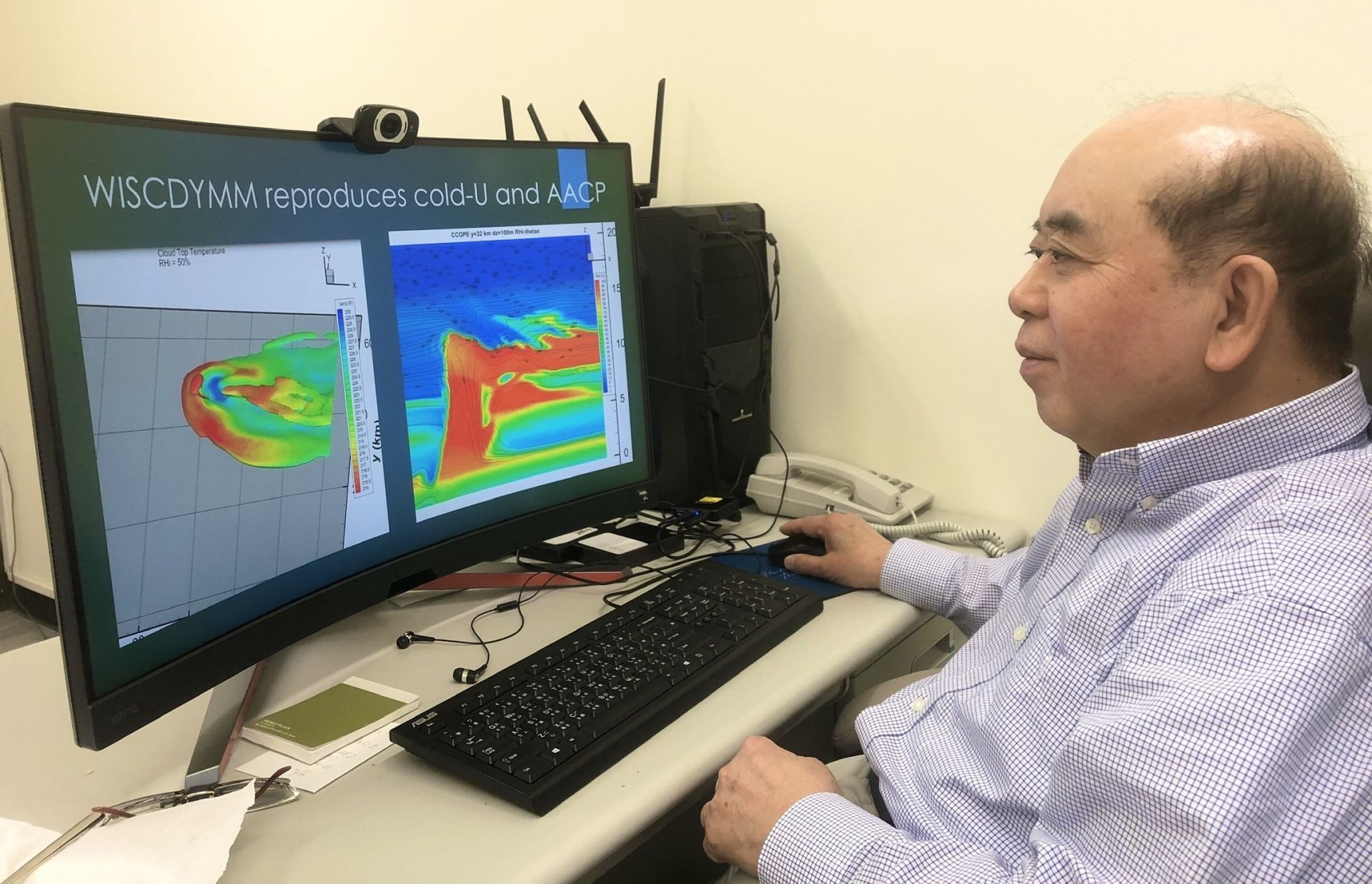
Prof. Pao-Kuan Wang developed a cloud model to study thunderstorms.
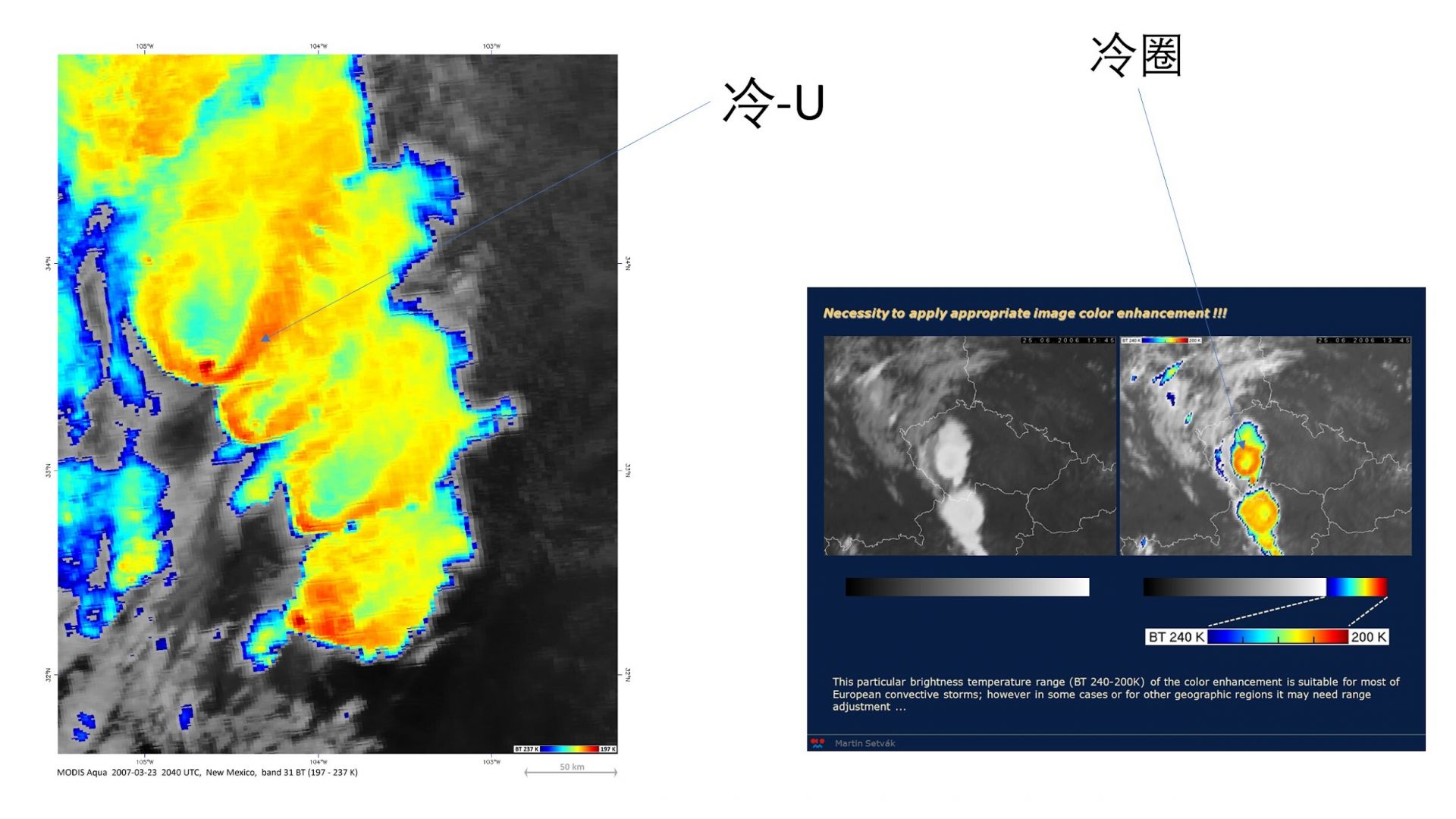
The cold-U and cold circles simulated by the cloud model are the same as those observed in artificial satellites. Credit: Prof. Pao-Kuan Wang
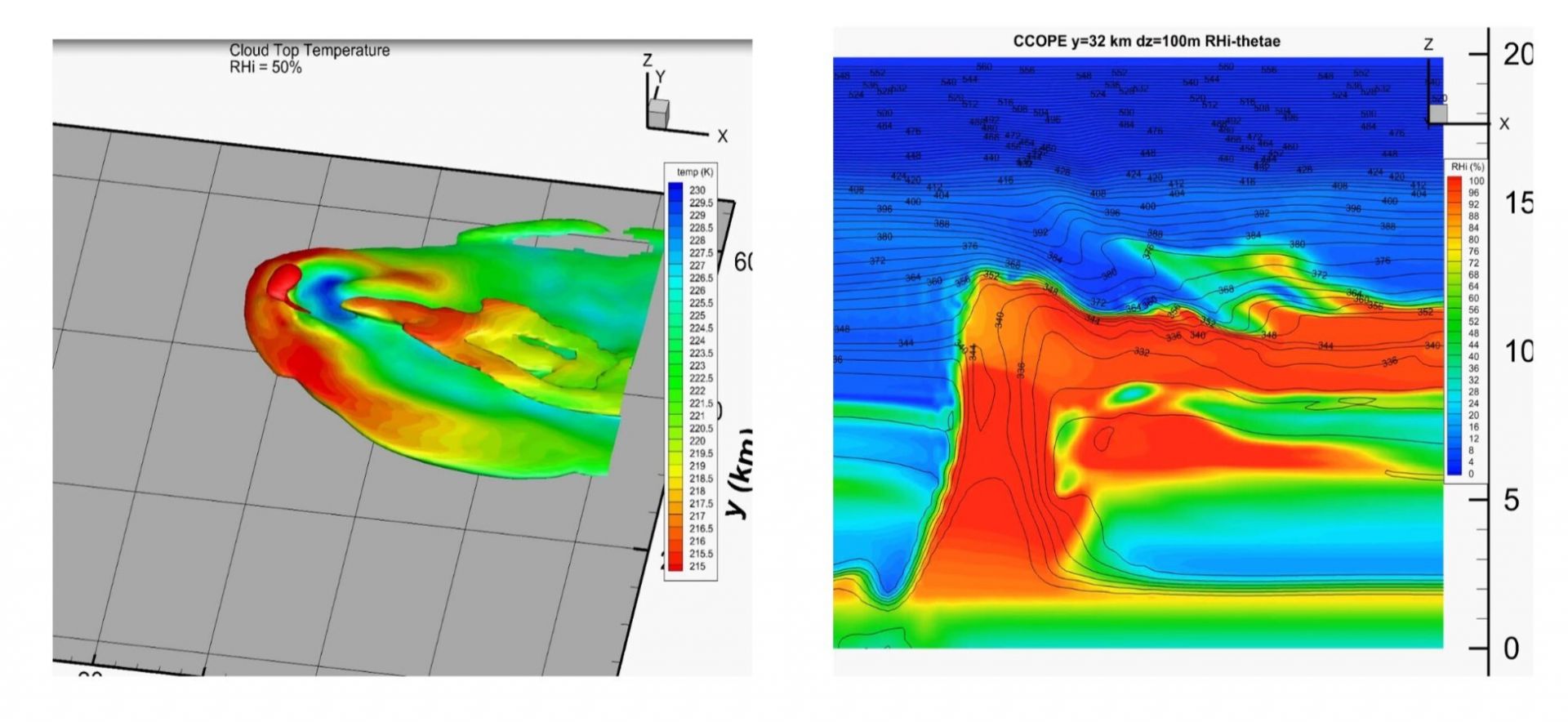
The cold-U and anvil upper cirrus clouds simulated by cloud mode can be seen in detail. Credit: Prof. Pao-Kuan Wang

Pao-Kuan Wang, Visiting Distinguished Chair Professor of Dept. Aeronautics and Astronautics, NCKU, and Academician of the Research Center for Environmental Changes, Academia Sinica, was recently awarded the Nikolai Dotzek Award, the highest honorary award of the European Severe Storms Laboratory (ESSL).
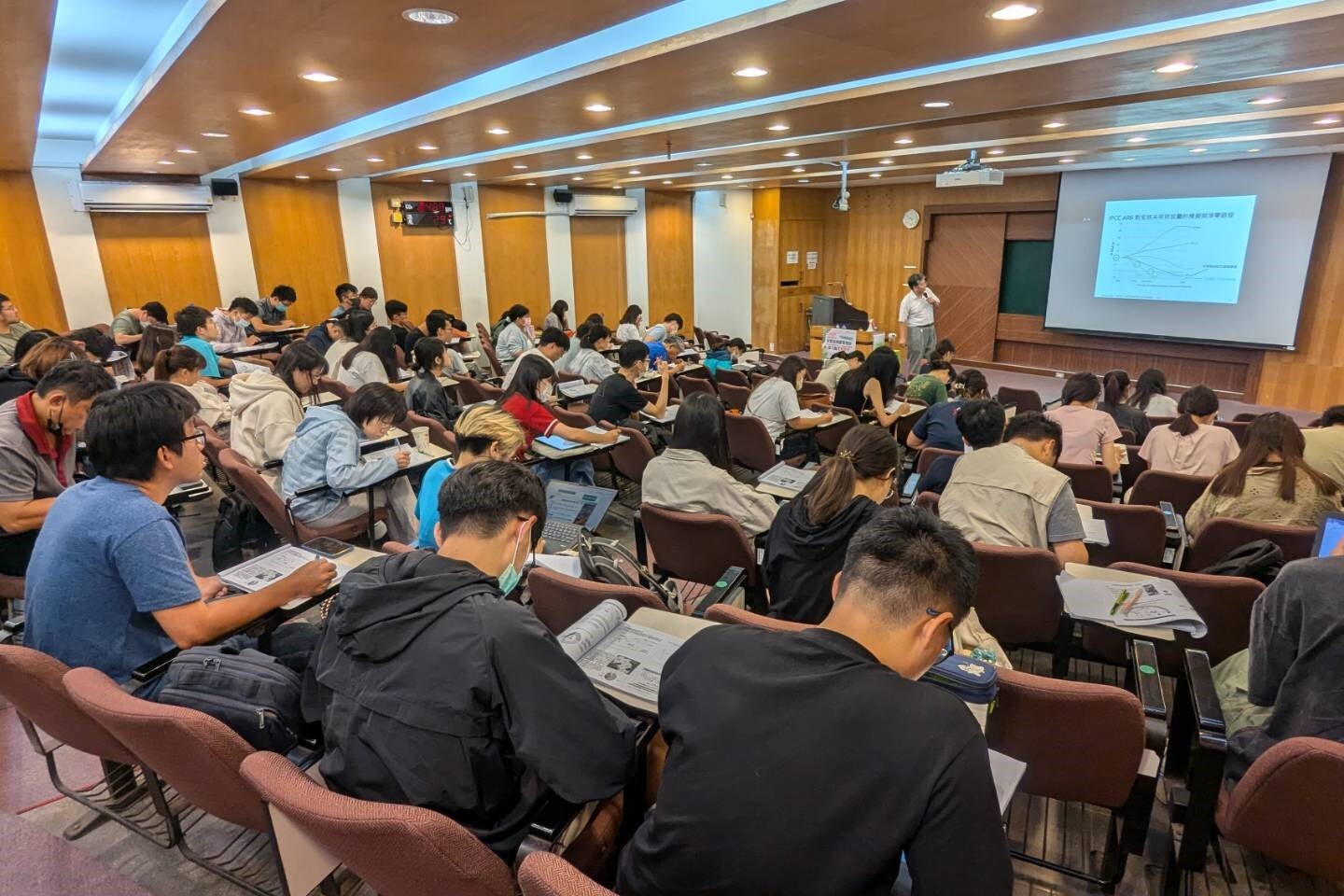
SDG13The iPAS "Net Zero Carbon Planning Manager" certification course at NCKU Carbon Neutral Hub has become highly popular
View more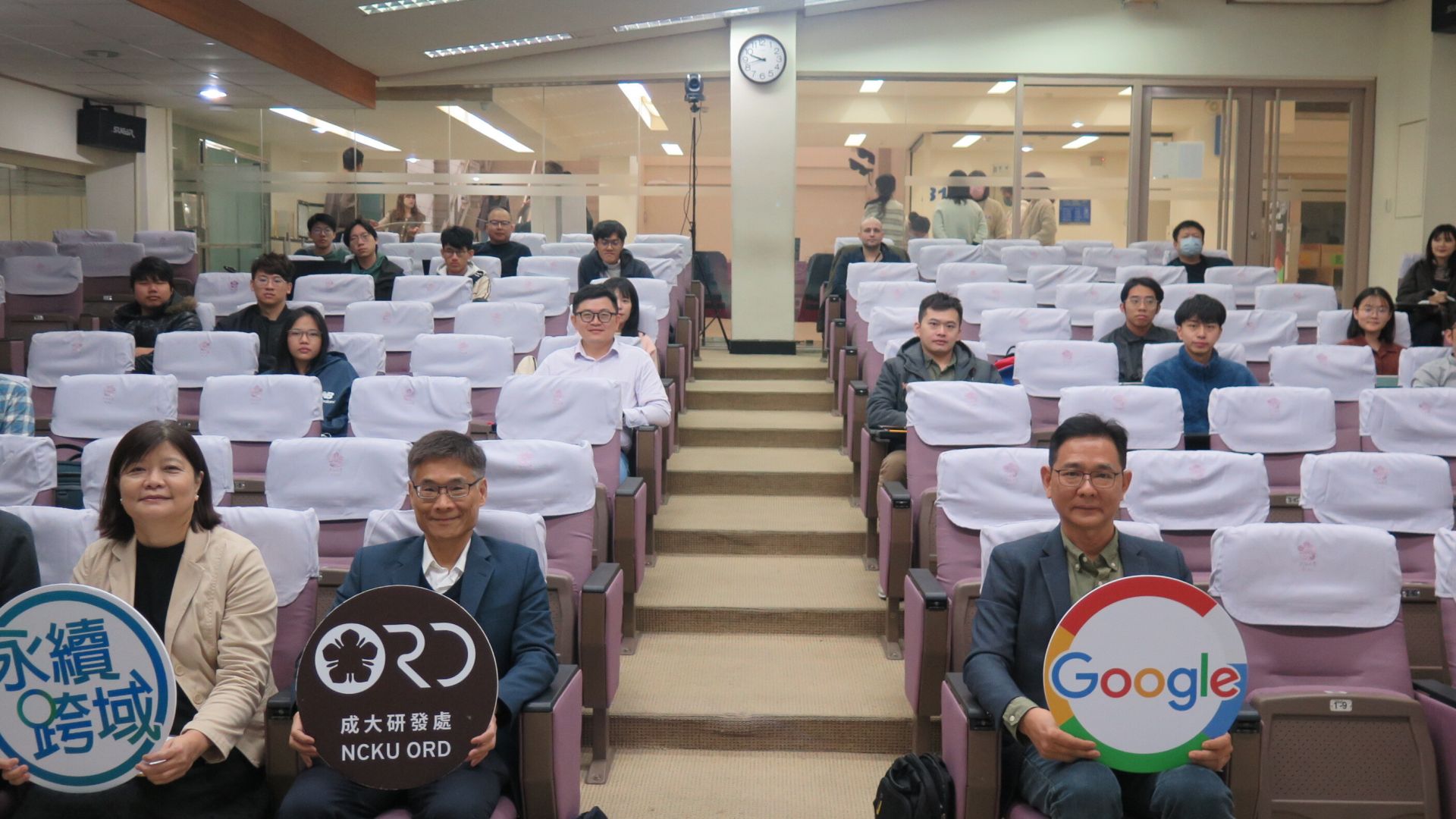
SDG13Google-NCKU Zero Carbon Emissions Seminar: Exploring Technology and Future Collaboration
View more